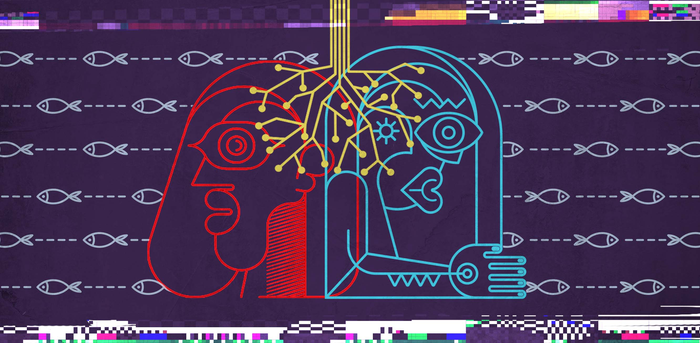Dec 07 2021
Democracy as a Complex Adaptive System
 What do economics, biological evolution, and democracy have in common? They are all complex adaptive systems. This realization reflects one of the core strengths of a diverse intellectual background – there are meaningful commonalities underlying different systems and areas of knowledge. In fact, science and academia themselves are complex adaptive systems that benefit from diversity of knowledge and perspective. All such systems benefit from diversity, and suffer when that diversity is narrowed, possibly even fatally.
What do economics, biological evolution, and democracy have in common? They are all complex adaptive systems. This realization reflects one of the core strengths of a diverse intellectual background – there are meaningful commonalities underlying different systems and areas of knowledge. In fact, science and academia themselves are complex adaptive systems that benefit from diversity of knowledge and perspective. All such systems benefit from diversity, and suffer when that diversity is narrowed, possibly even fatally.
A recent collection of studies focuses on American democracy as a complex adaptive system, and explores the mathematical underpinnings of how democracies behave and change over time in response to specific variables. Some of the insights are not surprising, but the research adds mathematical rigor to these phenomena. For example, you will likely not be surprised to learn that social media echochambers (what they call “epistemic bubbles”) lead to increased polarization of political views. But how, exactly, does this happen?
What various researchers found is that when we obtain our political news from a network of like-minded people several things happen. First, the group tends to narrow over time in terms of political diversity. This happens because those who are considered “not pure enough” are ejected from the network, or leave because they feel less welcome. Further, people within the network tend to get access to less and less political news total, and the news they are exposed to is increasingly polarized. This doesn’t happen when such networks do not routinely share political news to begin with.
The core problem, therefore, seems to be the diversity of sources of information. Similar networks of people, in fact, can have a moderating effect on individual members, if the group maintains a diversity of sources of information reflecting a diversity of political opinions. Further, a healthy moderating effect is supported by individual members exploring outside the group for sources of information.
These patterns follow similar mathematical trends to other very different phenomena in other complex adaptive systems. For example, such trends tend to be non-linear, meaning the more extreme they get the more the trend accelerates. Further, there seems to be tipping points of no return. Once such information networks are radicalized beyond a certain point there may be no way back. Their models indicate that Republicans are likely already beyond this tipping point, while Democrats are rapidly approaching it.
What, then, can be done? As individuals the apparent solution is to maintain a diversity of information sources, and continue to explore for new sources. Don’t rely on any one or limited number of networks of like-minded people for your information. Further, strive to be tolerant of a diversity of opinions among your various social circles. It’s good for everyone. This is why I tend to have a very light touch when it comes to moderating the comments section of this blog (if I may make a personal aside). I find it healthy to have a diversity of opinions, even if I strongly disagree with some of them. When I do (rarely) ban someone it is purely because of disruptive trolling behavior, not because of their opinions.
What can we do as a society? This is a tougher question. Some have argued, I think reasonably, that we may need to bring back the fairness doctrine in news reporting. There is also a lot of focus on social media algorithms, which seem to have automated the very effects that these researchers warn against, sucking people into an epistemic bubble of increasingly narrow and radical views.
The research goes well beyond the effects of social media and echochambers, looking also at politics itself. For example, they find that politicians tend to be more radical than their voters. This is partly because they are responding to the most passionate end of the spectrum, which tends to be more radical. But democratic systems (like social media networks) can be organized in such a way as to encourage either radicalization or moderation. Guess how our system is set up? Perhaps the worst culprit is extreme gerrymandering, which allows a minority to control power and increasingly insulates politicians from the will of the electorate. Both these factors have radicalizing effects. At this point it’s a no-brainer that we need to simply ban gerrymandering altogether. Other measures, such as ranked-choice voting, may also have a moderating benefit.
There is a lot more if you care to dig into these studies, but one thing is clear from not only this research but also history – democracies are not only complex adaptive systems, they are unstable. They exist in a delicate equilibrium, and various forces may disturb this equilibrium. Long term stability requires that democracies have mechanisms that favor the return of the system to equilibrium. Right now America seems to be awash in forces that favor movement away from equilibrium – away from moderation and diversity and towards an increasingly narrow and polarized electorate. The mathematics of such systems predicts that unless we make a change we will see a non-linear acceleration towards radicalization and polarization, racing beyond tipping points that my not be recoverable.






